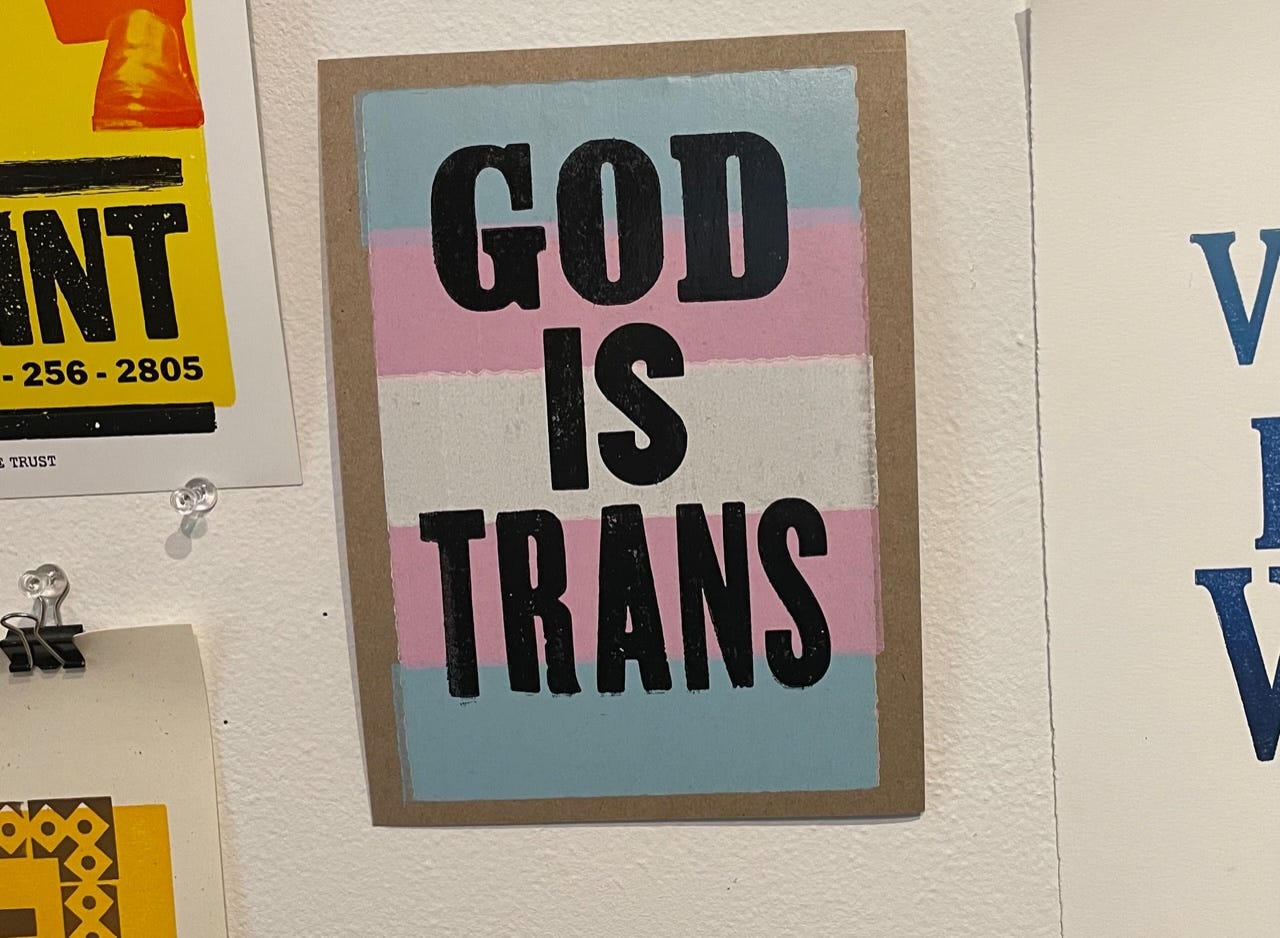Memoirs with Melissa shares bimonthly reviews intended to expose readers to diverse authors and life experiences. To see more of what I’m reading, browse my virtual memoir shelf on Goodreads.
Once upon a time, I gifted my Southern Baptist dad a book called When God Becomes a Drug: Breaking the Chains of Religious Addiction and Abuse, by Father Leo Booth. He accepted graciously. But there was no hiding that involuntary head twitch, the one my mom blamed on too much caffeine.
Today, my family is no longer Southern Baptist, and more than a couple of us are queer. I’ve become unmoored enough from my evangelical upbringing to welcome a memoir called Hijab Butch Blues to my TBR stack. And yet, once I got started, author Lamya H showed me just how much of the world I have yet to discover on the cusp of 43.
As someone who’s read A LOT of memoirs by queer authors, Lamya’s experiences with gender and attraction weren’t my primary areas of discovery in these pages. What blew my mind were their stories from the Quran. You know that perceived binary of Christianity and Islam that makes them seem like opposing belief systems? Their religious texts share a shocking amount of overlap.
You know that perceived binary of Christianity and Islam that makes them seem like opposing belief systems? Their religious texts share a shocking amount of overlap.
Reading Lamya’s classroom study of the Quran sent me back to first-period Bible in my private Christian high school. Remember Mary? Meet Maryam. Noah? Nuh. Joseph? Yusuf. Jonah? Yunus. The list goes on, culminating in God, aka Allah. Did your head just twitch?
What I especially admire about Lamya’s writing is how they dare to impose their own interpretation on the religious stories of their youth. In the book, their first lightbulb moments come out as questions: Did Maryam (aka the “Virgin Mary”) not like men? Does Allah (aka God) have a gender? Their speculations further in the narrative encouraged me to reframe familiar Bible stories. Some of my favorites: Was Yunus (aka Jonah) really running from his calling? Maybe the whale was a gift to replenish his spirit before his dangerous assignment. What if God doesn’t have a gender? Maybe God is trans.
Lamya doesn’t stop at religion. Their most groundbreaking writing around sexuality and gender centers on redefining what they call the authentic gay experience—the expectation they feel to be out, loud, and proud. Instead, they live in a way that feels safe and authentic to them. They write with a pen name, a device akin to Yunus’ whale. They choose not to be out to their Muslim family. They cultivate a chosen community where they feel safe to live out their queer identity. And instead of exhausting themself on the daily, they use writing as their form of steady, quiet activism.
Not until the end did I realize that the title Hijab Butch Blues is a play on Leslie Feinberg’s Stone Butch Blues*, a fiction book I learned about in my conversation with R/B Mertz on their memoir Burning Butch. And with that holy trilogy, I can’t help but acknowledge reading is its own form of quiet activism and community connection.
Happy Pride, and happy reading. If you need a last-minute Father’s Day gift, why not Hijab Butch Blues?
*The electronic version of Stone Butch Blues is freely available thanks to the author publishing the 20th anniversary edition days before hir death. You can download the PDF here.
All my reviews are public. I welcome and value every free subscriber. Paid subscriptions are an extra way to support my work and help this project succeed. Thank you!





